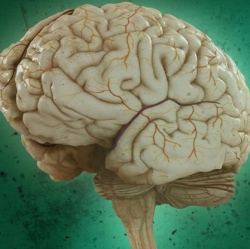
Salk Institute is developing a new subclass of anti-aging compounds that are hoped to extend lifespan, reduce the molecular markers of aging, and slow the onset of neurodegenerative diseases such as Alzheimer’s.
The work is on the cusp of commencing two human trials investigating the efficacy of two compounds.
"Geroprotectors" is a newly established umbrella term encompassing a variety of recently discovered anti-aging compounds. Researchers at Salk have now published a new study describing a subclass of these compounds, called geroneuroprotectors (GNPs).
"The argument for geroprotectors is that if one can extend the lifespan of model organisms, such as mice, and translate this effect to humans, then you should be able to slow down the appearance of many diseases that are associated with aging, such as Alzheimer’s, Parkinson’s, cancer and overall frailty," explains Dave Schubert, first author on the new study.
The study into developing new GNPs spun out of Salk research investigating several anti-aging compounds found in natural sources. Back in 2014 a Salk study revealed that fisetin, an antioxidant found in fruits and vegetables, could effectively prevent memory loss in mice engineered to develop Alzheimer’s. Other recent research into fisetin has revealed the compound produces remarkably effective health improvements, and lifespan extensions, in animal tests.
Alongside fisetin, the Salk team homed in on another promising natural compound called curcumin, which is derived from the spice turmeric. Curcumin has most recently been found to light up Alzheimer’s-related amyloid plaque deposits in patients’ retinas, offering researchers a new potential diagnostic tool for detecting early-onset Alzheimer’s.
From these natural chemicals, the Salk team developed three synthetic compounds designed to help protect the brain from aging related degeneration. In early animal tests these compounds proved promising in extending lifespan and reducing molecular markers of dementia. Alongside fisetin and curcumin, these three new compounds fit the new definition of geroneuroprotectors.
At this point the research team is moving forward with human trials into two of the specific synthetic GNP compounds that have been developed; CMS121, a compound derived from fisetin that is currently moving through the required animal toxicology studies needed before FDA approval for human study; and J147, which is derived from curcumin and is even more advanced, being currently under review by the FDA with trials expected to commence early next year.
The upcoming human trials for these promising new anti-aging compounds will primarily concentrate on their efficacy treating Alzheimer’s disease, but the researchers will incorporate other biochemical markers into the trials so broader effects can also be studied.
"If these drugs have benefits for other body systems, such as maintaining kidney function and overall muscle health, they could be used in additional ways to treat or prevent the diseases of aging," says Schubert.
A long road is certainly ahead before any of these compounds actually become real, prescribable treatments, however the prospect of an all-purpose drug that helps promote healthy aging, and prevents age-related neurodegeneration is certainly exciting. And Schubert suggests that the key to tackling Alzheimer’s disease may be in looking at these compounds that promise more general anti-aging effects.
"People have always thought that you need separate drugs for Alzheimer’s, Parkinson’s and stroke," says Schubert. "But it may be that by targeting aging we can treat or slow down many pathological conditions that are old-age-associated."
